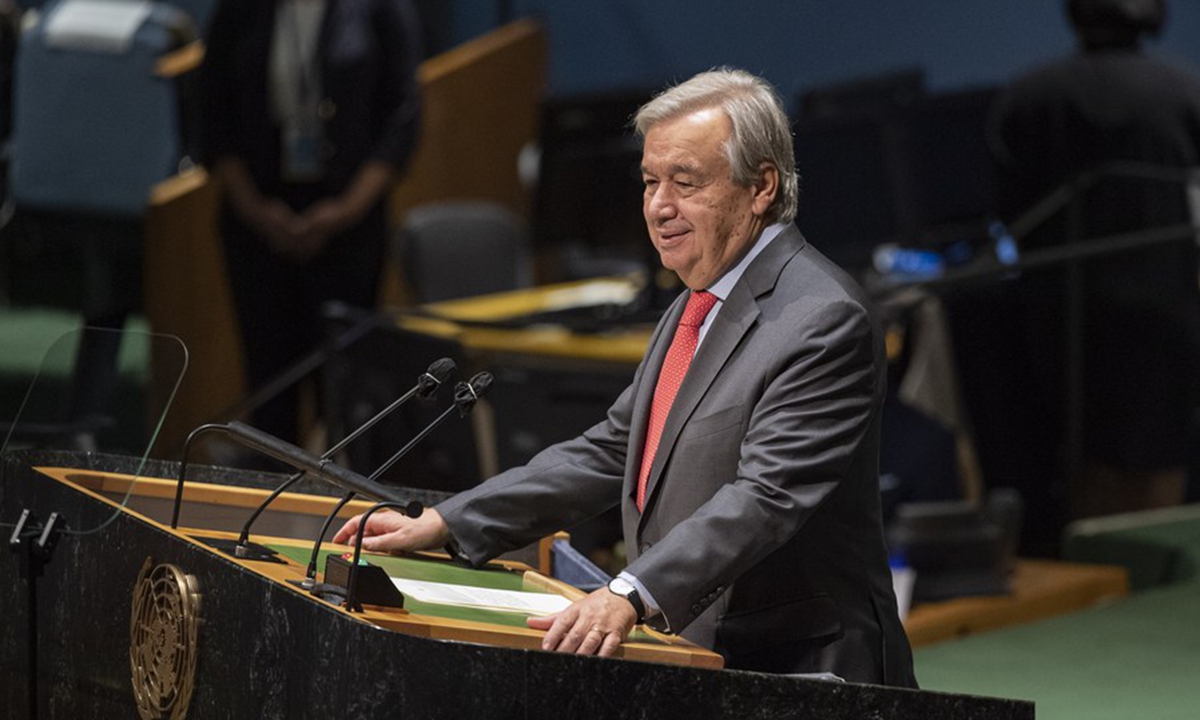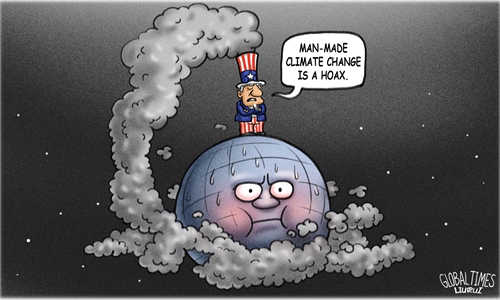UN chief urges leaders of every country to declare 'climate emergency'
Guterres calls for global emissions cut
UN Secretary-General Antonio Guterres called on every country to declare a "climate emergency" on Saturday, as world leaders marking the fifth anniversary of the Paris climate accord made mostly incremental pledges relative to the scale of the crisis.

Nevertheless, the dozens of leaders who spoke mostly offered tweaks to existing commitments or promises of bolder moves before crucial talks in Glasgow in late 2021, rather than breakthrough new policies to hasten the end of fossil fuels.
"Can anybody still deny that we are facing a dramatic emergency?" Guterres, a former Portuguese prime minister who has made climate change his signature issue, said via video.
"That is why today, I call on all leaders worldwide to declare a State of Climate Emergency in their countries until carbon neutrality is reached."
With the impacts of climate change increasingly stark since the Paris deal was struck - ranging from wildfires in Australia and California to collapsing ice sheets - popular pressure has grown on leaders to listen to warnings from scientists.
Britain, cohosting the summit, made one of the clearest new commitments, announcing late on Friday it would stop direct government support for overseas fossil fuel projects.
Campaigners hailed the move for putting pressure on other G7 economies to restrict support for oil and gas companies.
Renewed pledges to back Paris from countries such as India, Germany and France were welcomed less in terms of substance and more for keeping alive hopes of faster action to meet the monumental challenge of halving global emissions by 2030 in line with the Paris deal. In September, China unveiled targets to speed the expansion of wind and solar power. Japan and South Korea, which both pledged in October to reach net-zero emissions by 2050, likewise made no commitments on coal finance - though they did pledge to submit more ambitious emissions targets under the Paris accord.
Major emitters Australia and Brazil did not make ambitious enough pledges to qualify to speak, diplomats said.

United Nations Secretary-General Antonio Guterres addresses a high-level UN meeting to mark the International Day for the Total Elimination of Nuclear Weapons at the UN headquarters in New York, on October 2. Photo: Xinhua
Guterres made his call at a summit aimed at building on momentum behind the Paris deal, buoyed in recent months by renewed commitment from China and the prospect of US President-elect Joe Biden bringing the US back into the pact.Nevertheless, the dozens of leaders who spoke mostly offered tweaks to existing commitments or promises of bolder moves before crucial talks in Glasgow in late 2021, rather than breakthrough new policies to hasten the end of fossil fuels.
"Can anybody still deny that we are facing a dramatic emergency?" Guterres, a former Portuguese prime minister who has made climate change his signature issue, said via video.
"That is why today, I call on all leaders worldwide to declare a State of Climate Emergency in their countries until carbon neutrality is reached."
With the impacts of climate change increasingly stark since the Paris deal was struck - ranging from wildfires in Australia and California to collapsing ice sheets - popular pressure has grown on leaders to listen to warnings from scientists.
Britain, cohosting the summit, made one of the clearest new commitments, announcing late on Friday it would stop direct government support for overseas fossil fuel projects.
Campaigners hailed the move for putting pressure on other G7 economies to restrict support for oil and gas companies.
Renewed pledges to back Paris from countries such as India, Germany and France were welcomed less in terms of substance and more for keeping alive hopes of faster action to meet the monumental challenge of halving global emissions by 2030 in line with the Paris deal. In September, China unveiled targets to speed the expansion of wind and solar power. Japan and South Korea, which both pledged in October to reach net-zero emissions by 2050, likewise made no commitments on coal finance - though they did pledge to submit more ambitious emissions targets under the Paris accord.
Major emitters Australia and Brazil did not make ambitious enough pledges to qualify to speak, diplomats said.



